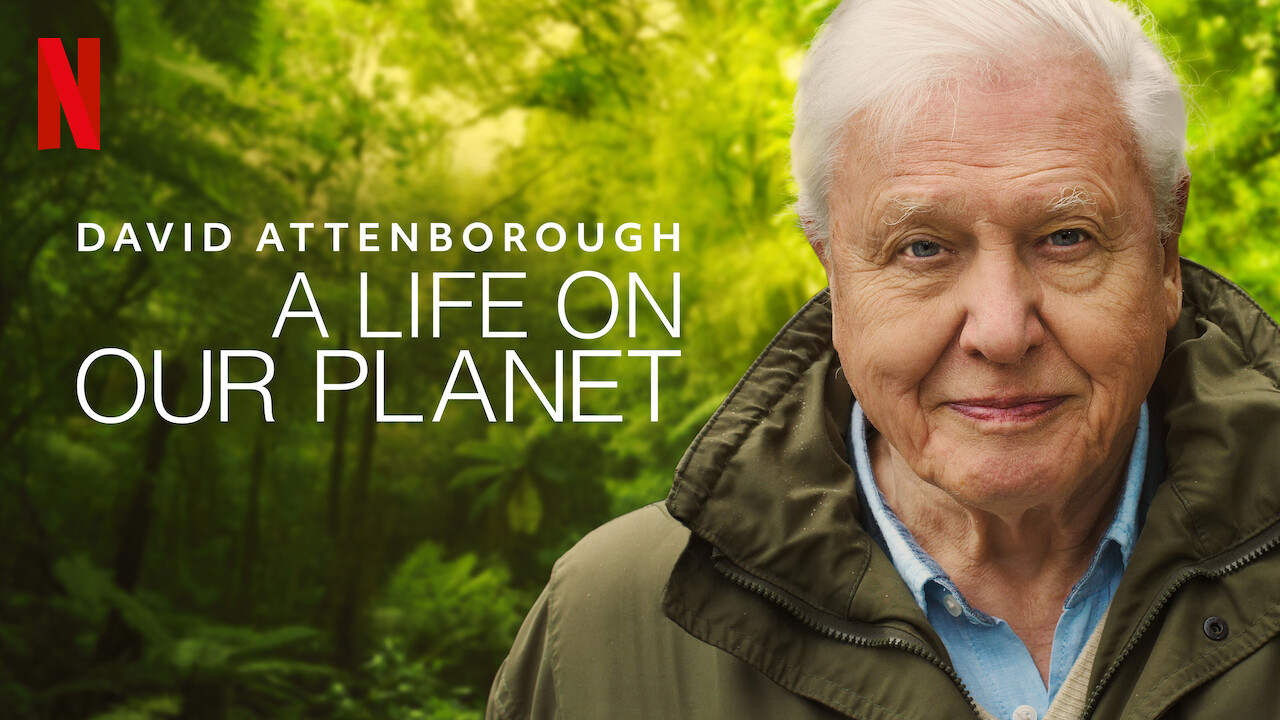Duration: 1h23m
IMDB rating: 8.9/10
Language: English
Directors: Alastair Fothergill, Jonathan Hughes, Keith Scholey
Network: Netflix
Released date: 4 October 2020
Genre: Documentary
Main idea: The film is David Attenborough witness statement and his vision for the future
Cast: David Attenborough, Max Hughes
Website: David Attenborough: A life on our planet
The opening scene in this documentary is the following: Sir David Attenborough walks across a Ukrainian city that has been evacuated since the Chernobyl accident. He explains how the Chernobyl accident was a result of bad planning and human error. However, it was a single event.
In his own words, “the true tragedy of our time is still unfolding across the globe, barely noticeable from day to day. I’m talking about the loss of our planet’s wild places, its biodiversity”. Due to human bad planning and human error, biodiversity declines. The message is clear: if we do not act immediately, planet Earth will become uninhabitable.
Sir David Attenborough highlights that approximately every hundred million years a mass extinction occurs; he pinpoints that a mass extinction has happened five times in Earth’s four billion years history. As a result, numerous species disappear, some of which are replaced by a few. The last time it happened was a meteorite that changed the Earth’s living conditions and brought the end of dinosaurs, wiping out 75% of all species.
Our time is called the Holocene, one of the most stable periods in our planet’s great history; stable meaning that the average temperature has not risen or declined more than one degree Celsius for more than 10.000 years.
The Holocene was our Garden of Eden.
Sir David Attenborough
The spotlight is turned to rainforests: these precious natural habitats where more than half of the species on land live. In a tropical rainforest, there could be more than 700 different species of trees. However, human activities turn this variety of trees into a monoculture of oil palm. There is a double incentive to cut down forests: timber and farming from the land that is left behind. This is the reason we have cut down 3 trillion trees across the world.
We can’t cut down rainforests forever and anything that we can’t do forever is by definition unsustainable.
Sir David Attenborough
The ocean starts to die. Corals are bleaching, due to the warming of the ocean. The reason that the global air temperature has been relatively stable till the ‘90s was because the ocean was absorbing the excess heat. The ocean has long since become unable to absorb all the excess heat caused by human activities. Consequently, as the narrator highlights, the average global temperature today is one degree Celsius than it was when he was born (in 1926). In numbers:
- We have overfished 30% of fish stocks to critical levels,
- We have reduced the size of freshwater populations by over 80%,
- Half of the fertile land on Earth is now farmland,
- 70% of the mass of birds on this planet are domestic birds (the majority is chicken). A further 60% are the animals we raise to eat.
This is now our planet, run by humankind for humankind. There is little left for the rest of the living world. The human beings have overrun the world. That is my witness statement.
Sir David Attenborough
After narrating the damage that it was done, Sir Attenborough describes what is predicted to witness if he was born today. During 2030s, the Amazon rainforest is cut down, altering the global water cycle, while the Arctic become ice-free during the summer. During 2040s, ice melts releasing methane (a greenhouse gas many times more potent than carbon dioxide), accelerating the rate of climate change dramatically. During 2050s, coral reefs die, while during 2080s global food production enters a crisis once soil becomes more exhausted by overuse. Lastly, during 2100s, our planet becomes four degrees Celsius warmer than today with large parts turn into uninhabitable. “A six mass extinction event is well underway”.
The narrator emphasizes that we need to restore the stability of our planet by restoring its biodiversity. To do so, as he underlines, we must rewild the world and use renewable energy.
It’s crazy that our banks and our pensions are investing in fossil fuels when these are the very things that are jeopardizing the future that we are saving for.
Sir David Attenborough
He insists that we must protect our ocean since it’s a major source of food and reduces the carbon in the atmosphere. Additionally, as he claims we must change the way we farm by changing our diet, to recreate the space for returning wilderness.
In this world, a species can only thrive, when everything else around it thrives, too. We can solve the problems we now face by embracing this reality. If we take care of nature, nature will take care of us.
Sir David Attenborough
The documentary in numbers:
| Year |
1937 |
1954 | 1960 | 1978 | 1977 |
2020 |
| World population |
2.3 bn* |
2.7 bn | 3.0 bn | 4.3 bn | 5.9 bn |
7.8 bn |
| Carbon in atmosphere |
280 ppm** |
310 ppm | 315 ppm | 335 ppm | 360 ppm |
415 ppm |
| Remaining wilderness |
66% |
64% | 62% | 55% | 46% |
35% |
| *bn = billions
** ppm = parts per million |
||||||
Why you should see this film?
The documentary does not need any prior (scientific) knowledge. After Sir Attenborough devoting his life to visit every continent so as to document the living world, now, for the first time he reflects upon both the defining moments of his lifetime as a naturalist and the devastating global transformations he has seen. The documentary is his “witness statement”. Biodiversity is declining every day due to human activities. He describes everything that has happened throughout his life on planet Earth, showing how we can reverse the damage.
Trailer
